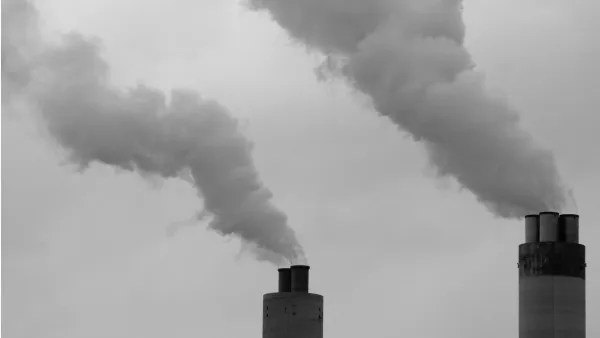Irvin Dawid discovered Planetizen when a classmate in an urban planning lab at San Jose State University shared it with him in 2003. When he left San Jose State that year, he took with him an interest in Planetizen, if not the master's degree in urban & regional planning.
As a long-time environmental activist, he formed the Sustainable Land Use committee for his local Sierra Club chapter and served six years on the Bay Area Air Quality Management District’s Advisory Council from 2002-2008. He maintains his interest in air quality by representing Sierra Club California on the Clean Air Dialogue, a working group of the Calif. Environmental Dialog representing business, regulatory and public health/environmental interests.
Major interests include transportation funding, e.g., gas taxes, vehicle miles traveled (VMT) fees, road tolls and energy subsidies that lead to unlevel playing fields for more sustainable choices.
He hails from Queens (Bayside) and Long Island (Great Neck); received an AAS in Fisheries & Wildlife Technology from SUNY Cobleskill and a B.S. from what is now Excelsior College.
After residing for three years on California’s North Coast, he’s lived on the San Francisco Peninsula since 1983, including 24 years in Palo Alto. Home is now near downtown Burlingame, a short bike-ride to the Caltrain station.
He’s been car-free since driving his 1972 Dodge Tradesman maxi-van, his means to exit Long Island in 1979, to the junkyard in 1988.
Major forms of transportation: A 1991 'citybike' and monthly Caltrain pass, zone 2-2. "It's no LIRR, but it may be the most bike friendly train in America."
Irvin can be reached at [email protected]

Will Manhattan's "Central Business District Tolling" Clear the Way for More Congestion Pricing?
Cordon pricing applied to Manhattan's Central Business District, approved by the state legislature on March 31 and signed into law by Gov. Andrew Cuomo on April 1, has the ability to be a game changer for other cities considering similar programs.

No Good News for Climate Stabilization From a New Worldwide Energy Report
Last month, the Paris-based International Energy Agency released its annual "Global Energy & CO2 Status Report." Energy consumption grew 2.3 percent with fossil fuels accounting for 70 percent on the increase. CO2 emissions jumped 1.7 percent.

Royal Dutch Shell: Big Oil with a Conscience?
Big Oil companies are not all alike. Royal Dutch Shell is the first one to part ways with a major oil industry trade group over differences on climate change. It's also linking executive pay to goals to reduce the company's carbon footprint.

Gas Tax Increase Approved in Ohio
On July 1, motorists in Ohio will pay an additional 10.5 cents per gallon to fill up, while truckers will pay 19 cents per gallon more on diesel fuel sales. Accompanying the tax hikes are two controversial provisions that DeWine chose not to veto.

The First Mayor to Become President?
Pete Buttigieg, in his eighth and final year as mayor of South Bend, Indiana, a formerly shrinking Rust Belt city, is on a roll in his bid to capture the Democratic nomination to challenge President Trump next year. The Indy Star looks at his record.

























